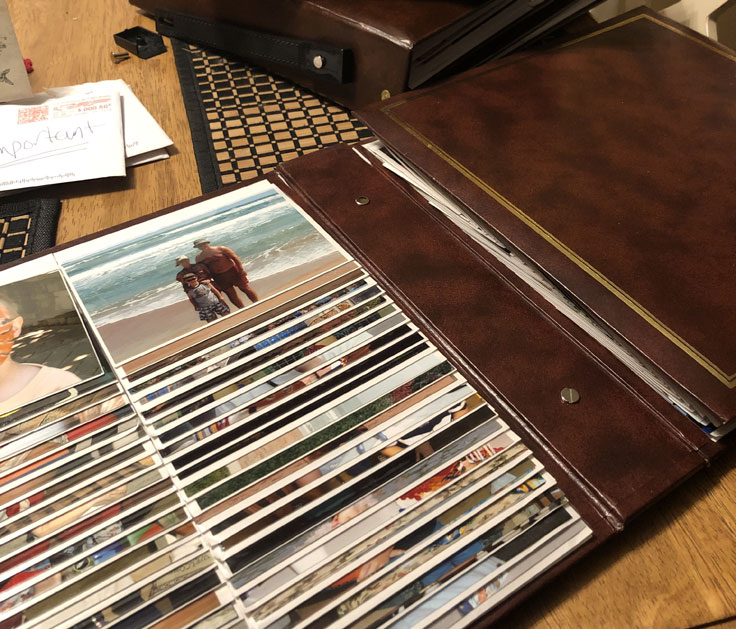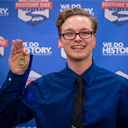
Purchase Tickets
All In Your Family
December 17, 2019

Many families are like mine, with stacks of heirlooms and photographs dating back multiple generations scattered about different relatives’ homes, along with numerous family artifacts. After two years of experience with National History Day and the Indiana Historical Society, I began to wonder, “What is my history? What is the interwoven story of my family?”
Unraveling stories like this requires lots of research and a multitude of hours to analyze what you find. My NHD experiences have acquainted me with scanning through documents and discerning the best story from them. Without the items my family had collected over the years, I would be at a loss on where to start. Eventually, I was able to uncover information on my great-grandfather as well as several great-uncles. They all served in the armed forces.
As the realm of history continues to advance and evolve, people without large pools of heirlooms or who do not know much about members of their extended family may be able to conduct similar research starting with genealogy. Genealogical research is not inherently new. Tracing back your ancestry and heritage was first systematized in the early 19th century, and even earlier, historians have discovered elaborate family trees created for royal families to track their histories. As modern technologies continue to grow, digital archives of complex family trees are allowing families to rediscover their roots.
With genealogy, people can build a connection to the past while still developing a future. Ancestors you find using your research often come with a set of documents and personal records that are now at your fingertips. Getting started with your genealogy may seem really complex but there are a few simple steps to take:
- What do you know?
Finding out what you already know or have is a great start. Make sure to keep an up-to-date written record. Include important details like names, relationships, dates, places of birth and anything else you may want to know. - What do I want to know?
From there, determine what information you do not have but are curious to learn. It could be as simple as finding a few missing pieces or looking into a mysterious individual. Focus on one question at a time. Otherwise, it’s easy to get overwhelmed and find yourself confused inside your own research. - Where can I look?
At this point, make a list of resources you may be able to find information in – like local libraries, courthouses, churches, online or even your own home. Several communities and organizations have archives containing a multitude of records. Make sure that when you ask for information to define two levels of information: a broad level and a concise level. For instance, a broad level of information would be: John Example, 1942–1963, born in Evansville. A more concise level of information would be: Birth Record for John Example, etc. - Where do I start my research?
Begin going to the places in step three and find out what information you can. Make sure you update your findings on your written record and try to keep hold of where your information is coming from; otherwise, it may just be hearsay. - What does it mean to analyze my research?
This step follows step four to make sure that the information you are receiving is trustworthy and reliable. You may also use this step to refine or resolve a question or follow a new tangent.
So why does this matter for history overall? Once you have all of this information and know where to find it, passing your findings along or taking a critical look at your heritage becomes much easier. Unraveling the past may be a reward in and of itself for some. By uncovering the stories of your ancestors, you build a bridge between the forgotten stories to the next generation of individuals who will remember them. Genealogy is promoting a resurgence in uncovering a personal history, and the impact it has on future generations could be monumental.









